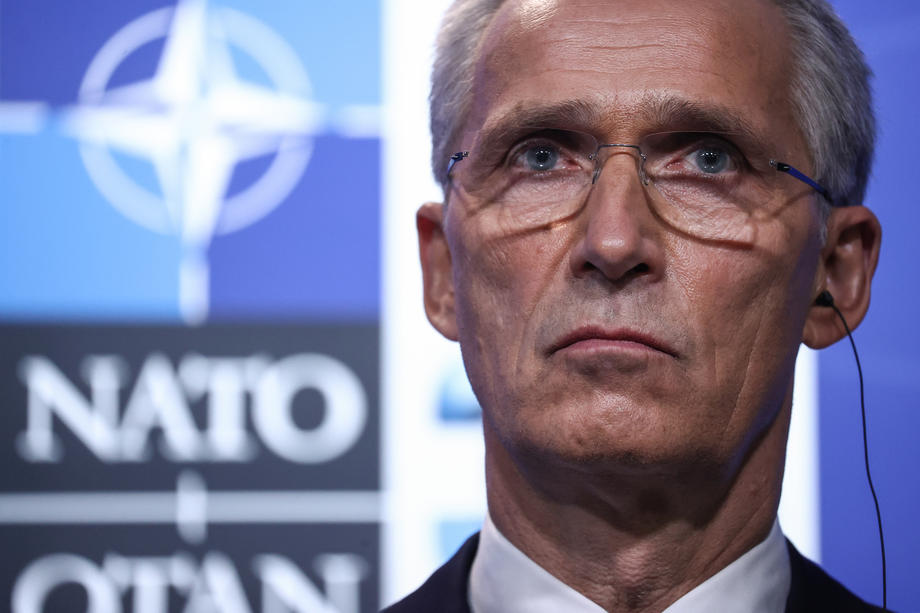Stoltenberg after NATO summit: China is an opponent, but we need to tackle the challenges
It follows from the NATO leadership meeting today that the main topic of the talks was relations with China and how the member states of the Alliance should prepare to respond to the security threats coming from there, said the MIA correspondent from Brussels.
For the first time, NATO today took a tougher line on China in its final declaration, encouraged by the growing US presence after Donald Trump's four-year term.
Following the one-day summit of the leaders of the Alliance member states held today in Brussels, NATO Secretary General Jens Stoltenberg, said the 30 member states had agreed on a range of "key topics", including the future of the Alliance through NATO Agenda 2030 and relations with China.
-NATO has come a long way, we first mentioned China in a leadership decision 18 months ago, before that we did not have a wording at all, China is an opponent, but we need to deal with the challenges, said Stoltenberg.
What worries Alliance members is the determination by which China is investing around the world and in critical sectors and infrastructure in an unconventional way that the West is lagging behind. This includes, among other things, the rapidly advancing 5G infrastructure in Beijing, but also nuclear weapons, cyber capabilities and cyber-attacks, China's coercive behavior and disregard for international rules, the Alliance chief explained. It is also in question strong cooperation with Russia, whose relations with NATO have not been worse since the Cold War, explained Stoltenberg.
Because of this, the Secretary General called on NATO member states to keep pace with their Chinese rival.
-We need to maintain a technological advantage, said Stoltenberg, adding that China is already investing heavily in advanced technology and has tight control over key infrastructures such as airports and 5G networks.
Member states, he said, need to strengthen their cyber and space capabilities to respond to China. Finally, the leaders today decided to strengthen their relations with Australia, Japan and Asia Pacific precisely within the framework of relations with Beijing.
- We are dealing with the fact that China is the second largest economy in the world and has the second largest defense budget, invests heavily in technologies such as artificial intelligence, face recognition, destructive technologies that change the way wars are fought and what we are not never seen before, this is important for our safety. The question is how we will deal, not whether.
However, according to Stoltenberg, this is not a reason to jeopardize the trade and economic relations that individual member states of the Alliance have with China.
"It's important to understand the challenges that China's rise poses to our security, and although many allies have a lot of economic ties with China, the question is not either-or, or we do nothing and continue to trade, and we do everything and we stop." we trade, it's not that simple, what matters is that individual allies today are tackling the opportunities arising from the rise of China, said Stoltenberg.
The head of the Alliance added that NATO countries today showed unity on this issue.
"China will soon become the largest economy, even the largest United States realizes that it is clear that when it comes to China, it is a huge advantage to have NATO allies," Stoltenberg said, stressing once again how important it is to invest in cybersecurity. and to protect vulnerable 5G systems, as well as to invest in advanced technology. But, he said, none of that prevents trade with Beijing.
Stoltenberg also referred to Russia, among other things, regarding the NATO membership hopes of Ukraine and Georgia and reiterated that the decision belongs exclusively to the 30 member states of the Alliance, and to the two candidate countries, but not to Moscow.
"Every nation has the right to decide its own path, including whether it wants to be part of NATO or not, Russia has no say here, it can not veto its neighbors, we will not go back to the old spheres of influence when the big decided on the small neighbors. Russia, or the Soviet Union, was unhappy when my country, Norway, became a member of NATO, as well as the Baltic states, and most recently with Montenegro and northern Macedonia. said the head of the Alliance.
The open door policy for new NATO members remains valid, Stoltenberg reiterated.



